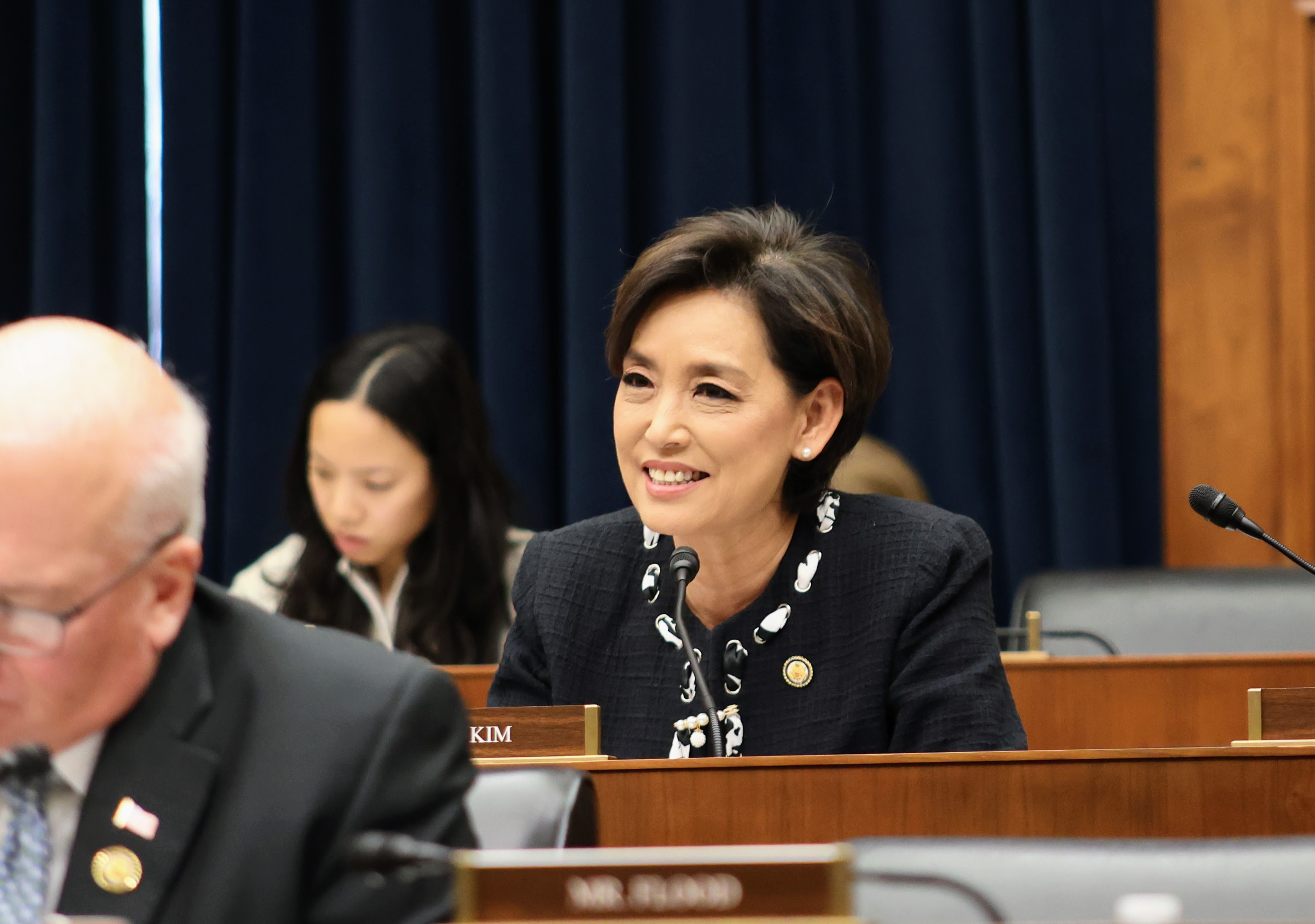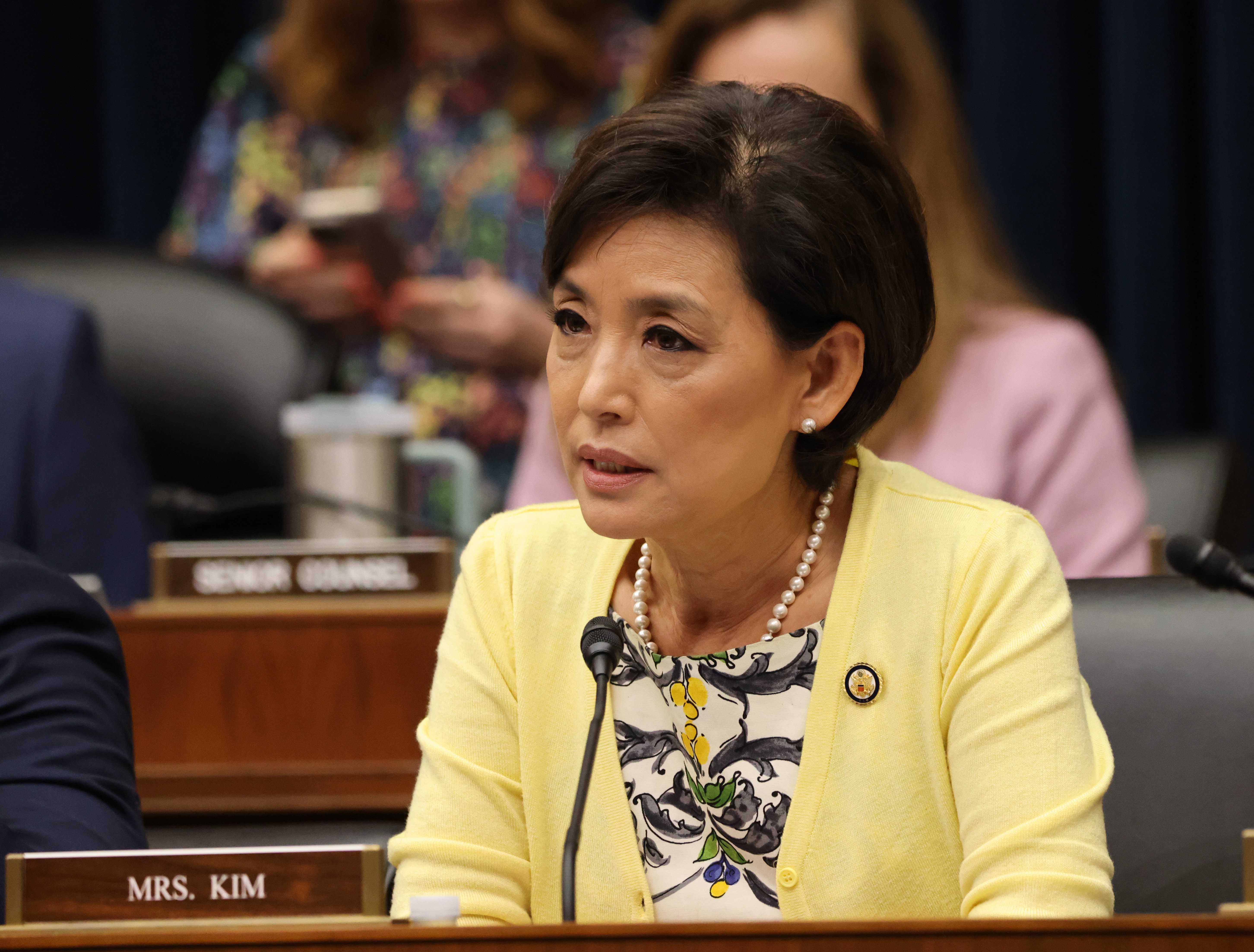All 90 of Hong Kong’s lawmakers have issued a rare joint statement condemning US politicians’ calls for sanctions on the city’s officials, calling the move a “despicable” attempt to interfere in Hong Kong’s affairs.
“The exercise of law enforcement, prosecution, and judicial powers in cases of serious crimes endangering national security is… legitimate action that cannot be distorted,” the lawmakers said in the Chinese-only statement on Tuesday.
“The despicable attempts by American politicians to interfere will undoubtedly be in vain,” it continued.
The statement was sent to reporters by the Democratic Alliance for the Betterment and Progress of Hong Kong (DAB), the city’s largest pro-Beijing party.
The 90 lawmakers were sworn into office following the election overhaul in early 2021, which resulted in the number of directly-elected seats slashed and the introduction of a mechanism to vet candidates to ensure they are “patriots.”
Among the legislators, only 20 were directly elected, while the rest were voted in via small-circle elections. Only one Legislative Council member, social welfare lawmaker Tik Chi-yuen, identifies as non-establishment.
Tik told HKFP that he joined the issuing of the statement after the idea was proposed in a WhatsApp group with the 90 lawmakers.
“Sometimes I have different stances from the other lawmakers, but for this matter [about the sanctions], I think it’s the right thing to do, ” Tik said in Cantonese, “I hope to encourage both sides to talk. Taking a confrontational stance is not good for both sides.”
The statement was a response to a bill proposed by US lawmakers called the Hong Kong Sanctions Act, which seeks to impose sanctions on Hong Kong judges, prosecutors and government officials. US lawmakers said they should be “accountable for human rights violations.”
The US lawmakers’ move was widely condemned by Hong Kong authorities, lawmakers and pro-Beijing business groups.
Pro-Beijing scholar Lau Siu-kai said on Sunday on Commercial Radio that Beijing may step in to transfer “significant national security cases” in Hong Kong to mainland China if the proposed US sanctions on members of the city’s Judiciary were to disrupt normal court proceedings.
Lau, a consultant for pro-Beijing thinktank the Chinese Association of Hong Kong & Macao Studies, said authorities could activate Article 55 of the national security law.
Article 55, which has not been made use of since the law came into effect in June 2020, stipulates three circumstances that Beijing’s national security office in Hong Kong can “exercise jurisdiction” over Hong Kong national security cases.
Beijing imposed national security legislation on Hong Kong following a year of pro-democracy protests and unrest that began in the summer of 2019. It criminalised subversion, secession, collusion with foreign forces and terrorist acts – broadly defined to include disruption to transport and other infrastructure.
‘Western hostile views’
Regina Ip, a pro-establishment lawmaker and the Executive Council convenor, told local media on Monday following a protest at the front of the US Consulate in Hong Kong that she agreed with Lau on the matter of Article 55.
Ip added that Hong Kong enjoys a “good state” of rule of law, and the sanctions proposed would have minimum effects on individuals. “On the contrary, it would only make those being sanctioned more determined to enforce their responsibility and safeguard peace and stability of Hong Kong,” Ip said, speaking in Cantonese.
Since the implementation of the national security law, the foreign business sector and Western countries have raised concerns over its enforcement. In October, The American Chamber of Commerce asked the Hong Kong government to provide “straightforward interpretations and applications” of the law, while the UK stated in September that Hong Kong authorities have expanded the use of the law “beyond genuine national security concerns.”
In response to HKFP, Ip said that it was the US who had adopted a broad approach to matters of national security. “The US has stretched the concept of national security to restrict tech exports, prosecute Julian Assange for exercising his freedom of expression, and prohibit other countries from exporting sensitive technologies to China,” Ip said. “Who’s going beyond [a] normal understanding of national security to go after their rivals and enemy?”
When asked how likely it was that Article 55 may be invoked, Ip said she had no comment “on such [a] conjectural question.”
Regarding Article 55, Tik said: “This is not what we would want to face. I hope that people suspected of committing crimes in Hong Kong would face trial in Hong Kong. ”
Holden Chow, vice-chair of the DAB, told HKFP that he believed the proposed US sanctions were “trampling” the rule of law of Hong Kong.
“I believe they do it on purpose, to protect their US agents and puppets, who have committed all sort of crimes and chaos in 2019, and now they are facing trial under [the] National Security Law, to make sure that they are scot-free,” Chow said. He added that some people might be “misled” by “Western hostile views” and might have prejudice against Hong Kong after the enactment of the security legislation.
Monday also saw a number of pro-establishment parties protesting outside the US Consulate in Hong Kong, including the DAB, the Hong Kong Federation of Trade Unions (FTU), and the New People’s Party chaired by Ip.
Young Kim, a US representative and a Republican who introduced the Hong Kong Sanctions Act along with representatives Jim McGovern and John Curtis, also mentioned media mogul Jimmy Lai’s case in a press release about the bill.
Lai, the founder of the now-defunct pro-democracy newspaper Apple Daily, has been detained since December 2020, when he was formally charged following his earlier arrest under the national security law.
“Jimmy Lai’s case is unfortunately just the latest example of Beijing exploiting its ‘national security law’ to exert control of Hong Kongers,” Young, who chairs the US House Subcommittee on the Indo-Pacific said. “I am proud to lead the Hong Kong Sanctions Act so the United States can take strong, decisive action to support the freedom-loving people of Hong Kong and hold officials accountable in violation of human rights,” she said.
Condemnations from commerce groups
A number of pro-Beijing commerce groups also expressed their opposition to the proposed US sanctions.
Jonathan Choi, the chairperson of the Chinese General Chamber of Commerce, said in a Chinese-only statement issued on Monday that American lawmakers were not familiar with Hong Kong and that the national security law has brought stability and peace to the city.
“The chamber believes that the sanctions not only interfere in the affairs of mainland China and Hong Kong, but also harms the interests of both Hong Kong and the United States,” Choi said.
The Real Estate Developers Association of Hong Kong also condemned the proposed sanctions in a Chinese-only statement on Tuesday. The group cited the Basic Law, which states that Hong Kong enjoys judicial independence and that courts shall proceed without interference.
“The rule of law is a core value of Hong Kong and a strong pillar of its favorable business environment,” the statement reads. “The chamber urges the US government and politicians to respect the spirit of the rule of law and cease interfering in the internal affairs of Hong Kong.”




